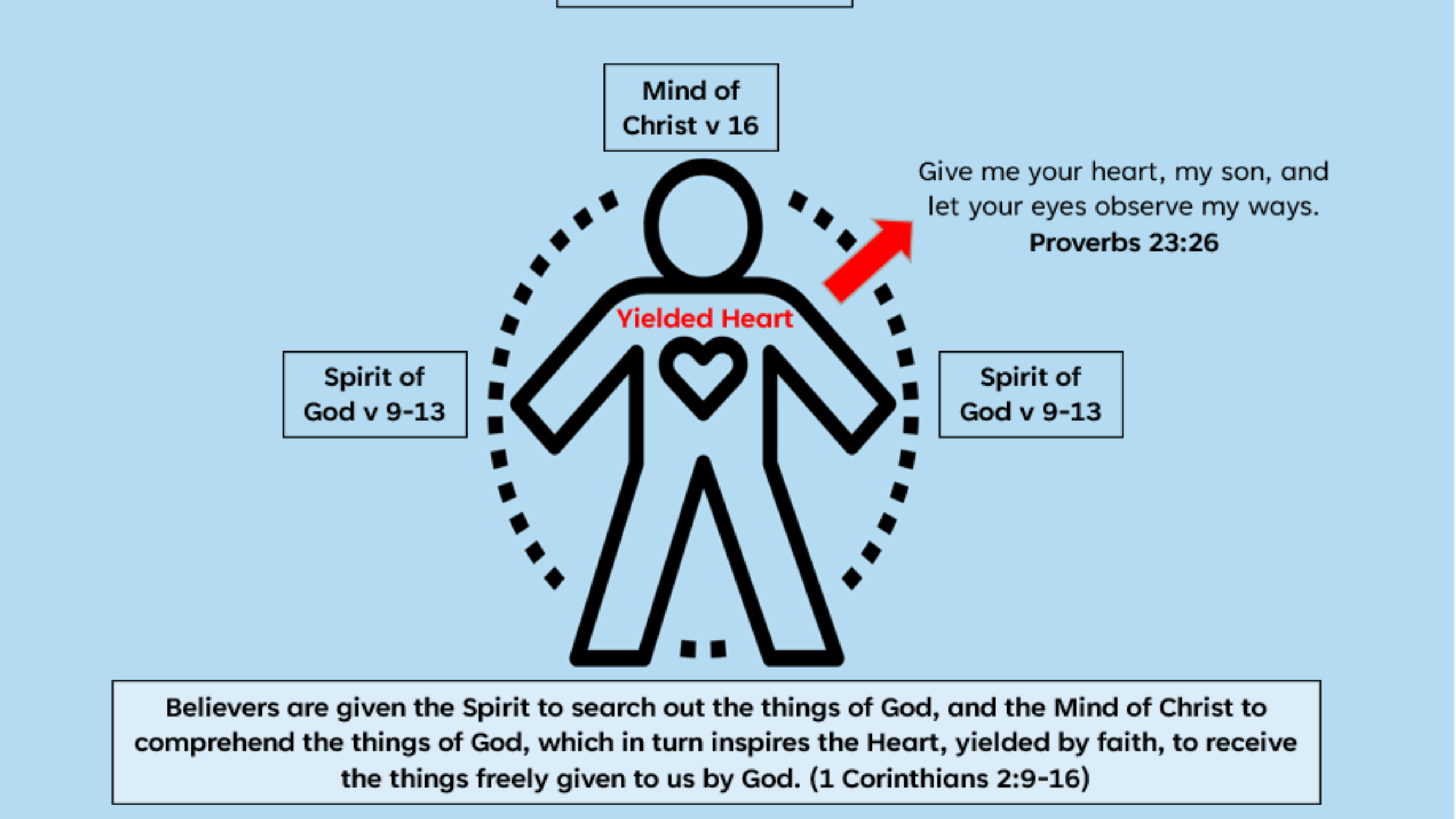Spiritual Gold: Why does knowing about parables help me?
- The benefits of understanding the parables of Jesus.
- The key to understanding the parables of Jesus.
- How parables help you grow stronger spiritually.
Introduction:
There is a quote attributed to a lot of people, depending on your interest, that says, “When the student is ready the teacher will appear.” Not a parable. I’ll show you why as we get into this episode. But the statement is true in the sense that, “If the student isn’t ready, they can’t be taught.”
- A student apprehends knowledge.
- A teacher imparts knowledge.
- A spectator does neither.
When it comes to the Parables of Jesus The Question is; are you a student, a teacher, or a spectator?
- Jesus used parables to teach the people: Matthew 13:34 and Psalm 78:1-2
- The definition of a parable:
The literal meaning of the Greek word parabole is ‘throwing (bole) alongside (para)’.
- A simple story. (the story isn’t complicated, it’s the meaning that’s complicated).
- It illustrates a moral or spiritual lesson.
- It is a comparison or an illustration of something else.
- It is a brief fictional narrative. (Rich man and Lazarus).
3. The Characteristics of parables:
- It is straightforward and as normal as possible.
- It has no complex plots or characters. (Not M. Night Shyamalan)
- Parables have a hook to draw listeners into the story (engagement).
- Parables have a specific point and sometimes utilize scripture.
- Fictional stories with a twist at the end to get the listener’s attention. (Prodigal).
4. Misconceptions about parables:
- It’s a riddle.
- It’s a proverb.
- It’s a test.
- It’s a problem that has an intellectual solution.
- It’s a specific actual event.
- It isn’t applicable to everyone….. (You don’t have to be Einstein)
5. The levels of a parable: A parable is like a Hotel you check into on a vacation.
- Parking level – the listener can’t make out the distinction between the story. Dark, dank, obscure.
- Lobby level – this level keeps the listener engaged in a developing story. There is a story regardless of the virtue that is being explained. Like the ground floor of a building, its stairs, elevators, and signs, the building is still overwhelming to navigate.
- Mezzanine level – this level is between floors. The parable engages mentally and emotionally. You have a better view but still can’t see what’s above you.
- Room Levels – here there are many levels of rooms. This level of understanding is where lifelong changes take place. Every level higher creates more significant change.
- The Roof – is when we’re in heaven with Jesus.
NOTE: Comparing the levels of a parable to the levels of a hotel, is a parable.
6. The purpose of a parable: Matthew 13:10-17 and Isaiah 6:9-10
- To demonstrate that the one who has will be given more: (v. 10-12)
Then the disciples came and said to him, “Why do you speak to them in parables?” And he answered them, “To you, it has been given to know the secrets of the kingdom of heaven, but to them, it has not been given. For to the one who has, more will be given, and he will have an abundance, but from the one who has not, even what he has will be taken away.
- To demonstrate that the one who doesn’t have will lose what they do have: (v. 13-15)
This is why I speak to them in parables, because seeing they do not see, and hearing they do not hear, nor do they understand. Indeed, in their case the prophecy of Isaiah is fulfilled says:
‘You will indeed hear but never understand, and you will indeed see but never perceive. For this people’s heart has grown dull, and with their ears, they can barely hear, and their eyes they have closed, lest they should see with their eyes and hear with their ears and understand with their heart and turn, and I would heal them.’ (Isaiah 6:9-10)
- Make the deaf aware they are deaf.
- Make the blind aware they are blind.
- Make the thick-hearted aware their hearts are callous.
- To demonstrate God has a time for all things: (v. 16-17)
- But blessed are your eyes, for they see, and your ears, for they hear. For truly, I say to you, many prophets and righteous people longed to see what you see, and did not see it, and to hear what you hear, and did not hear it.”
Note: Parables speak to the heart of a person. If the heart is open to God, the parable can be received where the Spirit will work in the heart to reveal the meaning. But if the heart is callous or filled with worry or the riches of this world then the parable will go without meaning.
7. Understanding Parables: 1 Corinthians 2:9-16
- Understanding is from the Spirit of God (v. 9-13)
But, as it is written, “what no eye has seen, nor ear heard, nor the heart of man imagined (rise up/inspired), what God has prepared for those who love him” – these things God has revealed to us through the Spirit. For the Spirit searches everything, even the depths of God. For who knows a person’s thoughts except for the spirit of that person, which is in him? So also no one comprehends the thoughts of god except the Spirit of God. Now we have received not the spirit of the world, but the Spirit who is from God, that we might understand the things freely given us by God. And we impart this in words not taught by human wisdom but taught by the Spirit, interpreting spiritual truths to those who are spiritual.
- The natural (or non-spiritual) person cannot accept the things of God (v. 14)
The natural person does not accept the things of the Spirit of God, for they are folly to him, and he is not able to understand them because they are spiritually discerned.
- The Spiritual person can accept the things of God (v. 15)
The spiritual person judges (searches to comprehend) all things but is himself to be judged (can be searched or comprehended) by no one. (like Christ, Peter, John, Stephen, Paul, etc.)
- Believers have the mind of Christ (v. 16)
“For who has understood the mind of the Lord so as to instruct him?” (Isaiah 40:13) But we have the mind of Christ.
A Spiritual Person

- Believers are given the Spirit (desire/passion/motivation) to search out the things of God.
- And the Mind (mind of Christ) to comprehend the things of God.
- In turn, the Heart, yielded to God by faith (tender/non-callous) is able to receive the things freely given to us by God. What is a yielded heart or a non-callous heart? It is a heart that is given to God. (Proverbs 23:26)
- How do we give or open our hearts to God? The same way we do in any relationship. As this father is telling his son, or a mother would tell her child, or a spouse, or a friend. Open your heart to me by; having faith in me, trusting me, hoping in me, loving me, talking to me, listening to me, not running away, or hiding from me, but accepting forgiveness and understanding.
Conclusion:
What is your perspective? Are you a spectator, a student, or a teacher?
What is the condition of your heart? Thick or tender toward the Spirit?
Are you leaning into the Spirit? Finding ways to have a receptive heart Growing in Spirit and mind.
Spiritual Gold: Why does knowing about parables help me?
- The benefit of understanding the parables of Jesus.
- Confidence, Strength, Trust, Joy
- The key to understanding the parables of Jesus.
- A yielded heart
- How parables help you grow stronger spiritually.
- The more we have, the more is revealed


